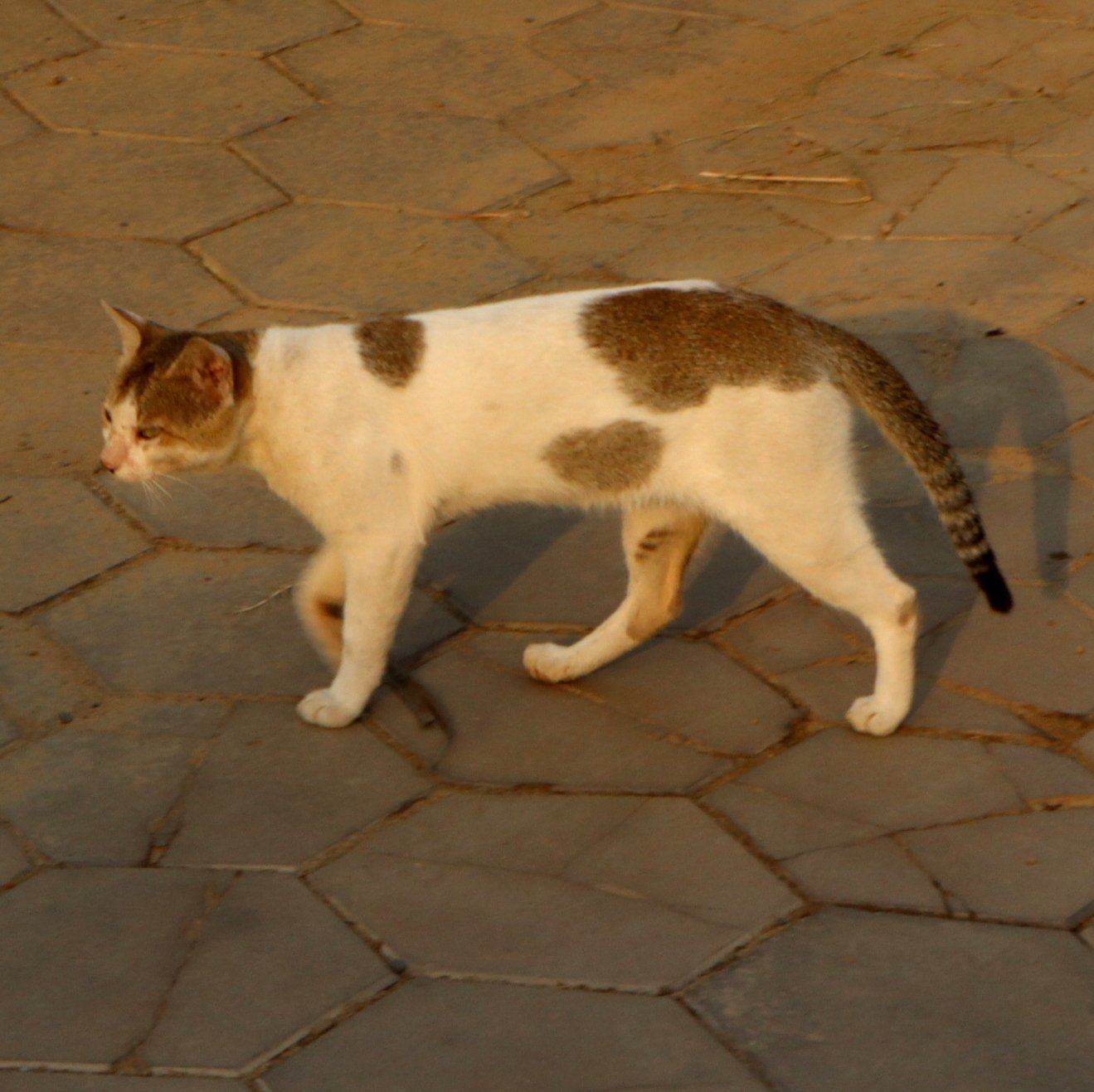
Cat
(SB 9.13.9 purport)
The example of a dog is very significant in this connection. A dog naturally does not become a devotee at any time, but still it is sometimes found that a dog of a devotee gradually becomes a devotee also. We have actually seen that a dog has no respect even for the tulasī plant. Indeed, a dog is especially inclined to pass urine on the tulasī plant. Therefore the dog is the number one nondevotee. But Śrī Caitanya Mahāprabhu’s saṅkīrtana movement is so strong that even a doglike nondevotee can gradually become a devotee by the association of a devotee of Lord Caitanya. Śrīla Śivānanda Sena, a great householder devotee of Lord Caitanya Mahāprabhu, attracted a dog on the street while going to Jagannātha Purī. The dog began to follow him and ultimately went to see Caitanya Mahāprabhu and was liberated. Similarly, cats and dogs in the household of Śrīvāsa Ṭhākura were also liberated. Cats and dogs and other animals are not expected to become devotees, but in the association of a pure devotee they are also delivered.
(CC Adi 10.1 purport)
So one who commits this sinful life in Vṛndāvana, remember, he has to become next life cats and dogs. There, as you see, there are many dogs, hogs. But still, Vṛndāvana-dhāma is so powerful that next life he will get salvation, even if he has become dogs and hogs. But that is not good. Why should we act in such a way that in Vṛndāvana-dhāma we shall commit sinful life and become a cats and dogs? Jaya jaya vṛndāvanavāsī yata jana. We should be careful. We should be careful, especially in dhāma, dhāmāparādha.
(751205 – Lecture SB 07.06.04 – Vrndavana)
